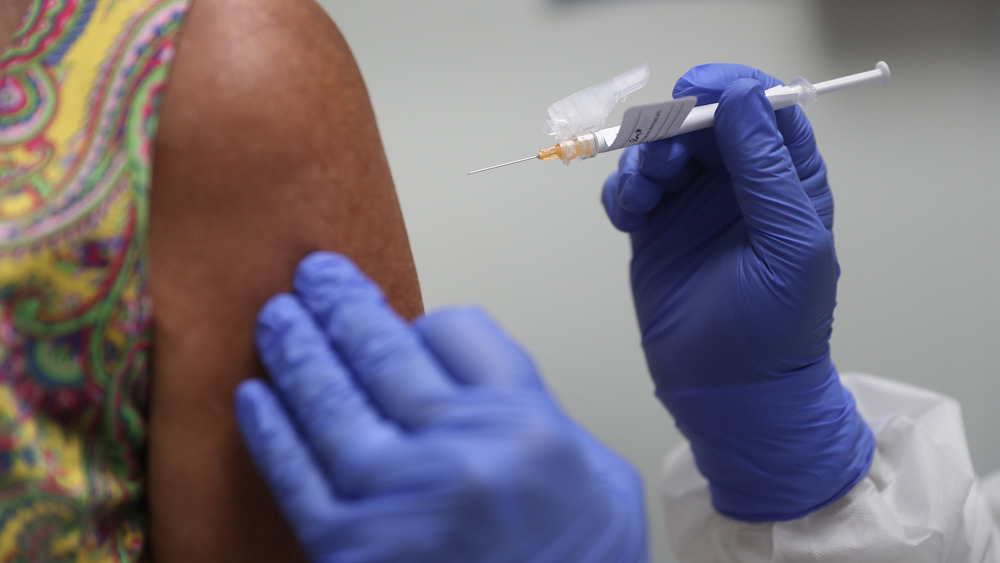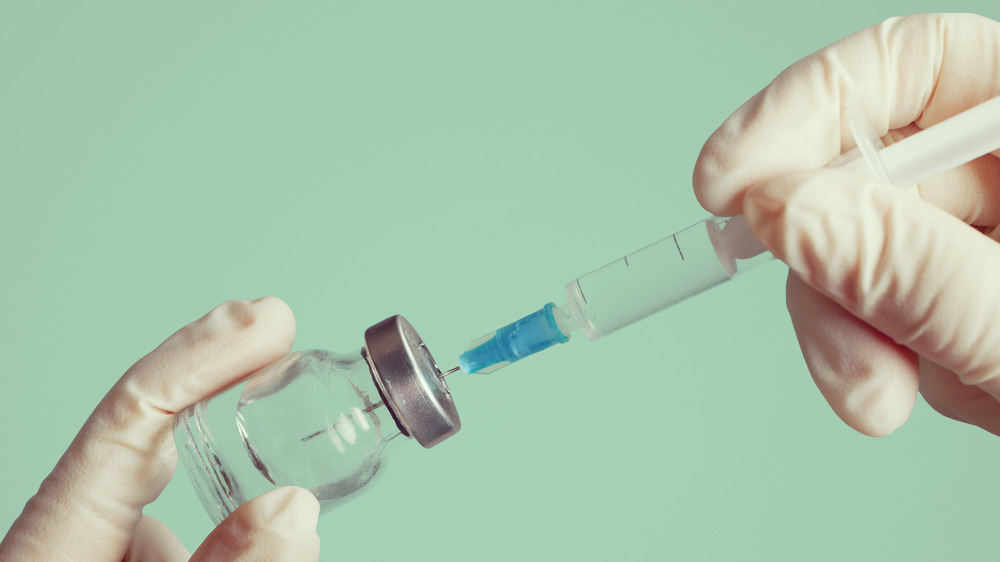Why Government-Issued COVID-19 Vaccination Cards Are Turning Heads
After recent news that you may be able to get a COVID-19 vaccine at your local supermarket or pharmacy, the Department of Defense has released further details about what, exactly, the vaccination process will entail. To be included in every vaccination kit and given out to every vaccinated person are COVID-19 vaccination record cards. According to the CDC, the cards will contain information about the vaccine manufacturer, lot number, date of first dose administration, and second dose due date. The organization has published guidelines recommending that "vaccination providers ... encourage vaccine recipients to keep the card in case the IIS or other system is not available when they return for their second dose."
Associate Director of the Immunization Action Coalition, Dr. Kelly Moore, assured CNN that COVID-19 vaccine cards would be the "simplest" way to keep track of COVID-19 shots. They will also, presumably, help different vaccination clinics coordinate among each other so that patients won't have to get both doses of a vaccine at the same vaccination provider. "The vaccines are not interchangeable," signaled Operation Warp Speed Director for Supply, Production and Distribution Paul Ostrowski in a statement. "We need the ability to verify the manufacturer and to notify the recipient when it is time for their second dose." But the cards' proposed purpose, and indeed, their existence is already facing a hailstorm of criticism via social media.
Concerns are growing over government-issued COVID-19 vaccination cards
The government's proposed COVID-19 vaccination cards are being criticized on three fronts. The first is practical: "I'm surprised that in 2020 the U.S. cannot come up with an electronic system? " posted one concerned Twitter user. "We have to carry a piece of paper? Why not a digital card?" Others tweeted, "How about using a QR code for a smartphone?"
The second concern circulating social media discussions around COVID-19 vaccine cards is the potential for fraud. Pulitzer Prize-winning journalist, Laurie Garrett, reacted to the announcement of the upcoming vaccination cards by pointing to the example of yellow fever vaccination cards in Nigeria. There, counterfeit vaccination certificates obligated the creation of digital cards protected by blockchain technology (via Vax Before Travel).
Finally, the last concern revolves around the protection of privacy and freedom of movement. While a considerable portion of the Twitterverse is up in arms about how "Orwellian" the vaccine cards are, and what a "slippery slope," such cards represent, journalist Bill O'Reilly sent skeptics a warning (via Twitter). "There are a lot of Americans who are not going to take the vaccine. And that is their constitutional right," he noted. "However, you are going to be banned by private businesses from going a lot of places."

